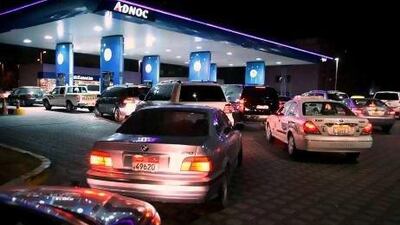Acknowledging an addiction is the first step to beating it. At a Royal Dutch Shell-sponsored debate in Dubai last week, regional energy experts asked: why do the Arabian Gulf countries use so much energy?
Among major economies, the UAE and Saudi Arabia are the fifth and sixth-most energy intensive in the world. Ahead of them are mostly former Soviet states with chilly climates and decrepit infrastructure.
To generate US$1 million (Dh3.6m) of economic output, the UAE requires the energy content of almost 2,500 barrels of oil, more than twice as much as the United States. Looked at another way, for industry, travel, electricity and other needs, each resident uses the equivalent of 80 barrels of oil annually, enough to drive from Dubai to Abu Dhabi and back almost 800 times.
Does high energy intensity matter? Using large amounts of energy may bring environmental problems and reduce the quantities of oil and gas available for export. But productive use of energy domestically can be good for the economy.
The GCC's high energy use is the result of four factors.
The first is the climate. It hardly needs repeating it's hot and dry, which means frequent air-conditioning and water being supplied by desalinating seawater. Dubai could hardly have become a business and tourism hub otherwise. On the other hand, warm weather also means that, unlike Canada, Russia or northern Europe, heating is not required in the winter.
Second is the structure of the region's economy. It relies on the export of oil and gas and on associated energy-intensive industry: oil refining; petrochemicals; aluminium; and steel.
The development of these industries was partly a natural outcome of the region's abundance of hydrocarbons and partly a deliberate choice of policy makers.
Until the globalisation of the gas business in the mid-1990s, gas could not easily be exported. It made sense to encourage its use locally via cheap pricing and investment incentives. Trinidad is the world's most energy-intensive significant economy because it has used its gas reserves to become an industrial centre.
Next, there is the Gulf lifestyle. With abundant land and cheap fuel, cities are the epitome of Texan or Californian suburban sprawl. Dubai's population is similar to Barcelona's but it covers 12 times the area. Public transport is limited, although gradually receiving more government attention. The long distances, aggressive driving on wide, impassable highways and fierce summer heat make walking or cycling all but impossible.
Lastly, there is simple over-consumption. Very low pricing of water encourages luxuriant gardens to sprout in the desert. With cheap electricity, people can run their air-conditioning with the windows open. Subsidised fuel allows big cars and fast driving - with the attendant problems of sedentary lifestyles, congestion, accidents and air pollution.
High energy intensity is not preordained. Singapore is significantly richer than the UAE, with exceptionally low unemployment of just 2 per cent. It has a large oil refining and petrochemicals sector and a humid, tropical climate. Yet it uses a third less energy for each dollar of economic output. This is partly due to its high-tech manufacturing sector; partly to its costly energy, compact scale and policies to curb car use in favour of mass transit.
There are good and bad reasons for using a lot of energy.
The Gulf countries have grown big enough that their domestic consumption is limiting their own exports and having a significant effect on global markets.
Now is the time for a disciplined approach to energy: ensuring we know where it is used productively and where it is squandered.
Robin M Mills is the head of consulting at Manaar Energy, and author of The Myth of the Oil Crisis and Capturing Carbon


